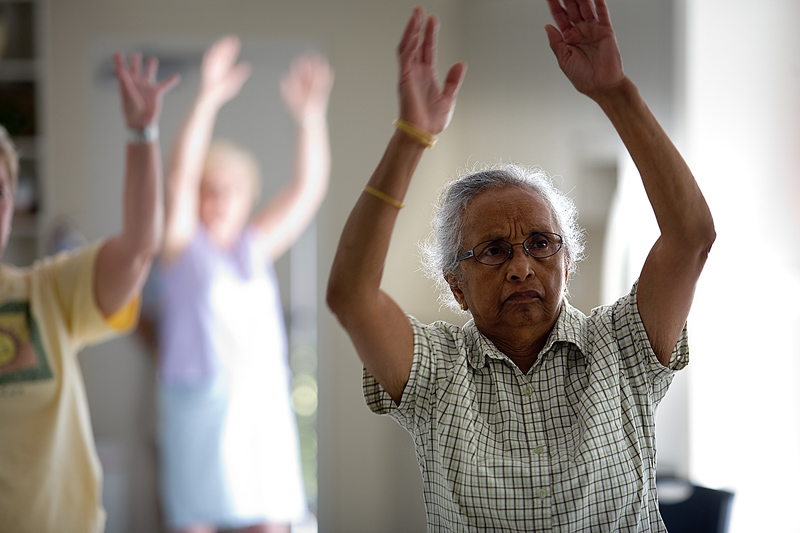
THURSDAY, March 8 (HealthDay News) — Medical experts have long known that obesity can take years off your life, but a new Israeli study suggests that if you’re lucky enough to reach your mid-80s, carrying some extra pounds might actually help you live longer.
The study, by Tel Aviv University researchers, revealed that while obesity did increase the risk of dying for people in their 70s and early 80s, when people lived longer than that those who were obese had a slightly lower risk of death than their underweight or normal-weight peers.
The main message of the study is that “very old age has different rules, and just because something is true for most ages does not necessarily mean it is true above age 85, which is not an unusual age for older persons,” said study co-author Jiska Cohen-Mansfield, director of the Herczeg Institute on Aging at Tel Aviv University.
“It may be that as one gets older, the protective effects of obesity become more pronounced,” the authors wrote. For instance, heavier people are known to have lower rates of the bone-thinning disease osteoporosis and therefore have a lower risk of falls and injuries.
“Obesity may also provide energy reserves in times of stress, illness and trauma. In addition, obesity may prolong the period of pre-death weight loss, as aging is associated with decreased food intake,” they wrote.
But Cohen-Mansfield cautioned that the findings don’t mean that people in their mid-80s who aren’t overweight should try to fatten up in order to live longer. “That is a question for a separate study,” she said. “We did not examine changes in weight during the lifetime and their impact. It is possible that gaining some weight may be desirable and it may not make a difference, or it may have negative effects.”
What’s more, a key limitation of the study is that it only examined mortality, Cohen-Mansfield said, “and other indicators of well-being may be more important.”
For the study, recently published in the Journal of Aging Research, the authors used data from about 1,350 Jewish people between the ages of 75 and 94 who were part of a national survey conducted between 1989 and 1992. Twenty years after the data was collected, the researchers followed up to see who had died. Over the course of the two decades, all but 59 participants died.
One geriatrics expert in the United States was fairly circumspect about the findings. “There are far too many unanswered questions to make any definite conclusions about weight and death in very old adults,” said Dr. Evelyn Granieri, director of the division of geriatrics at New York-Presbyterian Hospital/The Allen Hospital in New York City.
“The investigators only saw the people in the study once, then looked 20 years later to see when, but not how, they died,” noted Granieri. “They did not do a medical history or examination or evaluate any of the subjects’ medical conditions or their medications. They did not determine if the weight the people had was new or if it was their usual weight. It may have been that the thin people were sick and their being thin was a result of chronic or acute illness.”
Granieri said people who are 85 or older should not feel compelled to change their weight. “You have been successful at reaching an age that the majority of people will not attain, so whatever the other factors that may have allowed you to reach that age, most likely, any change in weight will not change your mortality,” she said.
More information
The U.S. National Institutes of Health has tips on aging well.

